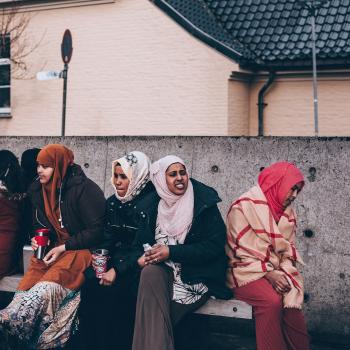Editors' Note: This article is part of the Patheos Public Square on the Future of Faith in America: Catholicism. Read other perspectives here.
Predicting the future is a difficult undertaking, but anticipating the coming years for global Catholicism is an even more daunting task. We need look only at the events of 2013 to be convinced that the Holy Spirit renders any predictions pointless and altogether foolish.
The election of Pope Francis represented more than a desire by the College of Cardinals for the first Latin American pontiff and the first non-European pope in 1,300 years. Put simply, the center of gravity for the Catholic world has shifted dramatically from the northern to the southern hemisphere. The Church is growing fastest where the world is youngest and also poorest.
Where religion in North America and Europe demonstrates a sclerotic state of affairs and a crisis of both faith and confidence, Catholicism in South America, Asia, and Africa coruscates with youth, vibrancy, and above all a commitment by most Catholic leaders to defend the authentic teachings of the Church in the face of materialism, secularism, and what Pope Francis calls ideological colonialism.
To be sure, those regions face immense problems of poverty, economic exploitation, a slow crawl toward social and political stability, and in the case of Africa, the relentless advance of radical Islam. Still, since 1978 and the election of Pope St. John Paul II, the Church has grown in South America from 195 to 350 million; Asia has expanded from 52 to 188 million; and Africa has exploded from 48 to 150 million. CARA, the Center for Applied Research in the Apostolate at Georgetown University, estimates that the Catholic population in Africa has grown by 238 percent over the last thirty-five years.
What are the implications of this for the future?
The Church in this century will be a suffering one. Persecutions in various forms are already on the horizon in Europe, Canada, and the United States as we shift perhaps irremediably toward a post-Christian and aggressively secular culture. Our numbers will likely decline in the West and persecutions will almost certainly continue in all other corners of the globe, from China (which is on a pace to become ironically the largest Christian country), to the Middle East (where Christians are in danger of extinction), to Sub-Saharan Africa, where the forces of the Jihad show no sign of subsiding.
The Church will be poorer. Marginalized and denigrated in the West, the Church will identify more closely with the poor and will be a powerful witness to the joy of the Gospel in the midst of Europe's likely twilight.
But the Church will still be growing, and we will see cardinals from Latin America, Asia, and Africa elected to the chair of Peter. They will guide a global Church that proclaims Christ, understand the dangers of doctrinal compromise, and especially embraces the missionary zeal of the Apostolic Age. With his focus on the poor, God's loving mercy, and his stress on the courage of the Apostles and first Christians who set out into a hostile world, Francis is showing the way forward. It is not for the faint of heart, but it is for the joyful.
7/15/2015 4:00:00 AM




